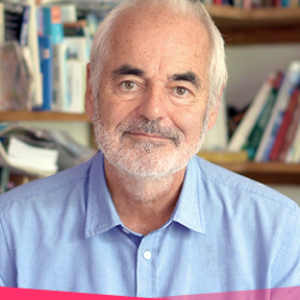
Friday May 30, 2025
David Spiegelhalter - How to be trustworthy about data
David Spiegelhalter, Chair of the Winton Centre for Risk and Evidence Communication, University of Cambridge, addresses data-based claims and trust.
About David Spiegelhalter
"I'm a retired professor in the Statistical Laboratory at the University of Cambridge and Chair of the Winton Centre for Risk and Evidence Communication.
I'm a statistician, and my passionate interest is in the use of statistics in society: the way that they're communicated in the media, the way that they're used by policy, the way that the public understand them and, of course, all the fake news, misinformation, and the claims made on the basis of numbers."
Manipulating the numbers
We all know this phrase: "There’s lies, damned lies and statistics". I get so fed up when that gets wheeled out in interviews as an accusation against statisticians. But I can see the reason why that is used as a casual dismissal of claims based on statistics because numbers can be manipulated so much. As I’ve said, they do not speak for themselves. I can make a number look big or small if I want to.
Let me give you an example. We had this EU referendum in 2016, and one of the famous claims on the side of the big red bus was: "We send £350 million a week to the EU. Let’s spend it on the NHS". Now, that number is wrong, but I don’t care about that. It was a brilliant use of a claim because it provoked so much discussion. You could argue that that single claim almost won the referendum.
But let’s assume it’s right. Is that a big number? £350 million a week? There are 60 million people in the UK, so that’s about £6 a week. That’s about two cups of coffee per week, but let’s do it per day. That’s about 80 pence a day, about a euro, a bit more than a dollar. That’s about a packet of cheese and onion crisps. They could have put that on the bus: “We each send the EU the price of a packet of cheese and onion crisps every day”. If they had, I don’t think that would have won them the referendum.
Key Points
• Numbers can be manipulated to look frightening or reassuring.
• Organisations and politicians need to demonstrate trustworthiness in order to earn trust.
• Transparent data-based claims should be accessible, comprehensible, usable and assessable.
• We can counter misinformation by “pre-bunking” it; be the first to tell people the misinformation and explain why it’s not true.
No comments yet. Be the first to say something!